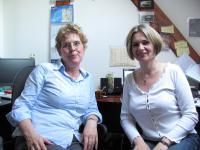The online lecture: Soteriology in Development: Patristic Perspectives on the Work of Christ
was presented by Dr. James Siemens an honorary Research Fellow in the Department of Religious and Theological Studies of the School of History, Archaeology, and Religion at Cardiff University, and a member of the Centre for Late Antique Religion and Culture. His research interests principally lie in the theology of the late-antique and early medieval periods, and he is currently investigating the eschatology of late antique historiography.
This talk drew its audience through eight centuries of thought on the work of Christ, by reviewing the examples of five Fathers of the Church and the way they construed the mission of the Second Person of the Trinity.
It was suggested that at the heart of patristic soteriology is the Pauline notion of recapitulation, especially as envisaged and transmitted by Irenaeus of Lyons. Finding concise expression in what Norman Russell calls ‘the exchange formula’ – that is, that God became human in order that humans might become divine – this would be deployed repeatedly after the second century, leading ultimately to a more developed doctrine of deification (theosis). That such an idea of exchange would influence everything from exegesis to hymnody is a testimony to its power over the patristic imagination. That it also did so in various regional contexts such as the Roman, Antiochene, Alexandrian, and Syriac, recommends its genuinely ecumenical appeal.



